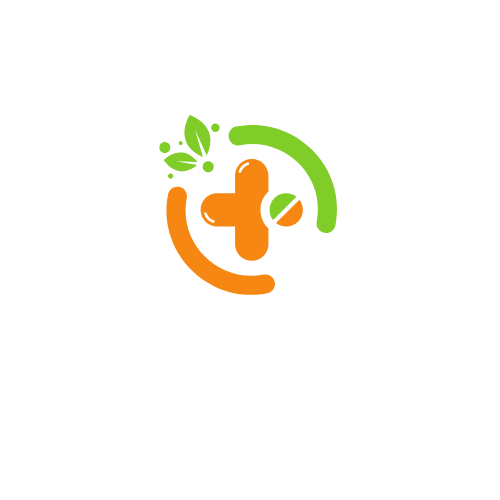In a world where global events can change faster than a cat meme goes viral, understanding foreign affairs has never been more crucial. Whether it’s a diplomatic handshake or a trade deal gone sour, the nuances of international relations impact everyone’s lives. But let’s be real—who has time to sift through mountains of data and jargon-filled reports?
That’s where foreign affairs research steps in like a superhero in a suit. It cuts through the noise and delivers insights that matter, helping policymakers and everyday folks alike navigate the complex web of global interactions. So, buckle up! It’s time to dive into the fascinating world of foreign affairs research and discover why it’s the key to unlocking a better understanding of our interconnected planet.
Table of Contents
ToggleOverview of Foreign Affairs Research
Foreign affairs research analyzes international relations, policies, and global events. This research provides critical insights that inform decision-making for governments and organizations. It involves tracking political developments, economic trends, and social changes across borders.
Scholars and analysts specializing in foreign affairs utilize various methodologies. Quantitative methods include statistical analysis and modeling to assess trends. Qualitative research often emphasizes case studies and expert interviews to provide context. These varied approaches deepen understanding of the complexities involved in global interactions.
Reports and publications originating from leading research institutions contribute significantly to the field. Examples include the Council on Foreign Relations, the Brookings Institution, and the International Crisis Group. Each organization focuses on different aspects of foreign affairs, fostering comprehensive analyses.
Research findings can influence public policy and enhance awareness among citizens. By communicating insights directly, research helps demystify complicated topics. Reports may cover issues such as climate change, trade agreements, and military conflicts, highlighting their implications.
Collaboration among researchers, policymakers, and stakeholders strengthens the overall impact. Conferences and seminars serve as platforms for sharing knowledge and fostering discussions. Stakeholders can utilize these insights to shape domestic and international agendas.
Recent developments in technology have revolutionized how foreign affairs research is conducted. Access to real-time data and advanced analytical tools enables researchers to quickly identify emerging trends. These innovations enhance the ability to respond to global challenges efficiently.
Understanding the nuances of foreign affairs research is crucial for navigating today’s global landscape. As international relations evolve, continued engagement in research will remain essential for informed decision-making.
Key Areas of Focus
Understanding foreign affairs research involves several key areas that provide insights into global dynamics. These areas, including geopolitical analysis and international relations theory, offer valuable frameworks for comprehending international issues.
Geopolitical Analysis
Geopolitical analysis examines the ways geographic factors influence global politics and power dynamics. Research in this area involves assessing territory, resources, and strategic interests of nations. Analysts study regional conflicts, identify shifts in alliances, and evaluate the impact of military engagements. Data from geopolitical studies inform policymakers about emerging threats and opportunities. Institutions like the Council on Foreign Relations contribute significant reports that shape our understanding of contemporary geopolitics. Findings in this field guide decision-making processes regarding national security and international collaborations.
International Relations Theory
International relations theory provides a foundational understanding of how states interact within the global environment. This field encompasses various theoretical perspectives, including realism, liberalism, and constructivism. Each perspective offers distinct explanations for state behavior and international outcomes. Scholars analyze historical events and ongoing conflicts through these theoretical lenses, enriching the discourse on diplomacy and cooperation. Insights gained from this analysis aid policymakers in developing effective strategies for conflict resolution and international engagement. Leading organizations, such as the Brookings Institution, regularly publish research that explores theoretical advancements and practical applications in international relations.
Methodologies in Foreign Affairs Research
Research in foreign affairs employs various methodologies to shed light on complex international issues. Combining qualitative and quantitative approaches often enhances analysis.
Qualitative vs. Quantitative Approaches
Qualitative methods focus on understanding the context behind foreign affairs, emphasizing interviews, focus groups, and content analysis. These methods provide in-depth insights into motivations, cultural factors, and perceptions shaping geopolitical events. Conversely, quantitative approaches utilize statistical techniques to analyze data sets. These methods assess patterns and trends, revealing correlations between variables like economic indicators and conflict occurrences. Scholars frequently leverage both approaches to create comprehensive analyses that inform policymakers about critical issues.
Case Studies and Comparative Analysis
Case studies serve as a powerful tool in foreign affairs research. They enable researchers to dive deeply into specific events or policy decisions, allowing for exploration of complexities and outcomes. Utilizing real-world examples helps illustrate broader trends or theories. Comparative analysis, on the other hand, assesses similarities and differences across multiple cases. By examining different countries or time periods, researchers can identify patterns and best practices. Both methodologies contribute valuable insights, guiding organizations in their decision-making processes and informing future strategies in international relations.
Recent Trends in Foreign Affairs Research
Recent advancements in foreign affairs research focus on several key areas, shaping how analysts approach global issues. A growing emphasis on data analytics enhances the ability to interpret intricate international relationships. Researchers increasingly utilize machine learning algorithms to sift through vast amounts of information, leading to more nuanced insights.
Heightened interest in climate change reflects its status as a pressing global concern. Research centers now dedicate substantial resources to understanding how environmental factors influence international stability. Political scientists analyze the intersection of climate policy and security, emphasizing that environmental challenges can exacerbate existing conflicts.
Emerging technologies, such as artificial intelligence and big data, continue to transform the landscape of foreign affairs research. Analysts leverage these tools to forecast international trends and assess potential conflicts. Improved data visualization techniques facilitate clearer communication of complex findings, making research more accessible for policymakers and the public.
Increased collaboration among research institutions and government agencies marks another significant trend. Joint endeavors allow for shared knowledge and resources, leading to more comprehensive analyses. Organizations like the Council on Foreign Relations and the Brookings Institution frequently partner with universities to tackle critical issues.
Additionally, the importance of public opinion in shaping foreign policy cannot be overlooked. Polling data provides insight into citizens’ perceptions of international relations, allowing for data-driven strategies. This connection between public sentiment and policy formulation highlights the relevance of incorporating diverse perspectives in foreign affairs research.
Another notable development is the shift towards interdisciplinary approaches. Experts from various fields, such as economics, sociology, and environmental science, contribute to a richer understanding of international issues. Integrating these disciplines fosters innovative solutions and enhances the research’s applicability in real-world scenarios.
Challenges in Foreign Affairs Research
Conducting foreign affairs research presents numerous challenges that impact the quality and reliability of findings. Complex data sets often overwhelm researchers. Extracting meaningful insights requires critical analysis and interpretation, demanding significant expertise. Rapidly changing global events complicate the research landscape, as analysts must quickly adjust to new information.
Limited access to reliable sources poses another hurdle. Some regions restrict data availability, which hampers thorough investigation of international dynamics. Additionally, language barriers can create obstacles in understanding foreign perspectives. Researchers must often rely on translation, which can lead to misinterpretations or loss of context.
Bias in sources also influences research outcomes. Analysts may unintentionally reflect the viewpoints of their institutions or funding sources, skewing findings and potentially affecting policy recommendations. Ensuring objectivity becomes paramount for accurate analyses, requiring rigorous peer review and transparent methodologies.
The interplay of various disciplines adds complexity as well. Foreign affairs research intersects with economics, sociology, and environmental science. Synthesizing information from these fields often proves challenging, as experts must navigate differing terminologies and methodologies. This interdisciplinary nature can lead to confusion and miscommunication among researchers and policymakers.
Funding limitations impact the scope and depth of research projects. Insufficient financial resources restrict the ability to conduct extensive studies, access databases, or employ advanced analytical tools. Consequently, smaller institutions may struggle to compete with larger entities, resulting in gaps within research contributions.
Competition within the field further exacerbates challenges, as researchers strive for recognition and funding. The pressure to produce groundbreaking findings can lead to rushed analyses or selective reporting. Maintaining integrity in research remains essential, promoting transparency and collaboration among scholars.
Foreign affairs research plays a crucial role in shaping global understanding and decision-making. As the international landscape continues to evolve, the insights derived from this research become increasingly vital. By employing diverse methodologies and fostering collaboration among stakeholders, researchers can provide clarity amidst complexity.
The integration of advanced technologies and interdisciplinary approaches enhances the ability to analyze intricate relationships and emerging challenges. As public opinion increasingly influences foreign policy, the importance of accurate and comprehensive research cannot be overstated. Continued investment in foreign affairs research will ensure that policymakers and the public are equipped with the knowledge needed to navigate the complexities of today’s world.

